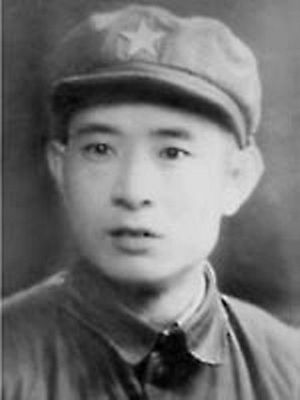Some China-related links ahead of the weekend:
On April 15, 1989, Hu Yaobang passed away. Hu, who held the position of General Secretary of the Chinese Communist Party from 1982-1987, is widely remembered as a reformer, which won him enemies within the Party. As a result, Hu was forced to resign from his position as General Secretary. His death sparked an intense reaction among those in the Chinese public who favored reforms, especially Chinese students. Public mourning for Hu, centered in Tiananmen Square, slowly morphed into something else entirely—the Tiananmen Square protests.
To mark the 25th anniversary of Hu’s death (and, by extension, the 25th anniversary of the Tiananmen protests), media outlets published pieces remembering Hu and reflecting on his legacy. China Digital Times provided a round-up of coverage from the New York Times and South China Morning Post. NYT discussed how the timing of Hu’s death turned him into a poignant symbol of reform and change for a generation seeking cleaner, more transparent governance. SCMP discussed modern-day remembrances of Hu, including a visit to his old home by former Chinese president Hu Jintao—a visit mainland Chinese media were ordered not to discuss. SCMP also talked to Hu’s son, Hu Dehua, who lamented the fact that China has still not implemented the political reforms his father wanted to see. “There was a window for reform then,” Hu said, referring to the 1980s, “but it was missed and I don’t know when the next one will come.”
Meanwhile, the Wall Street Journal’s China Real Time blog notes that Chinese authorities are allowing public of discussion of Hu, as long as it does not stray too close to the still-taboo subject of the Tiananmen protests. Still, Hu’s death, linked as it is to the Tiananmen protests, is sensitive. China’s largest state-run media outlets (including Xinhua and People’s Daily) were mum on the subject, but the Global Times ran an article linking the current reform efforts to Hu’s vision. GT noted that the popular embrace of Hu reflect “the public’s anticipation of reform and the building of a clean government.” Today, the article said, China is back on that path.
While Chinese media was largely silent on the subject of Hu’s death, next year will be the 100th anniversary of Hu’s birth—and this event may see an outpouring of official remembrances. In 2005, Beijing held an official celebration of the 90th anniversary of Hu’s birth, and then-premier Wen Jiabao praised Hu for his loyalty to the party and his embrace of reform. We might see similar praise for Hu the reformer next year as Xi Jinping continues his own reform agenda.
Meanwhile, over at The Economist, a video special report explores China’s urbanization process with Beijing bureau chief James Miles. Miles points out that, since the late 1970s, China has added over 500 million people to its cities, with an additional 10 million per year expected to continue this urban migration up until 2030. The process, Miles said, is both top-down and bottom-up. Rural migrants move naturally to urban areas where there are increased employment opportunities. However, governments (both central and local) seek to gain economic benefits from urbanization, and implement policies to artificially speed up this process. As a result, “spatial urbanization” (the building of urban areas) has in places surpassed the rate of urban population growth—in part because the restrictive hukou registration policy makes it difficult for rural residents to permanently move to urban areas.
The Diplomat also explored the issue of urbanization this week. Adam Tyner argued that China actually needs new rural policies, rather than an urbanization driven by government mandate. On the Pacific Money blog, Sarah Hsu wonders if the rapid pace of urbanization is environmentally sustainable or even beneficial to rural residents.
Finally, some lighter news. Though tensions between the U.S. and China are riding high, at least one American is receiving a warm welcome in China. The new film Captain America: The Winter Solider, the latest entry in the popular string of Marvel superhero films, is winning big at Chinese box offices. Tea Leaf Nation reports that the film brought in nearly $40 million for its opening weekend—more than Iron Man 3, 2013’s second-highest grossing film in China (and a film that went out of its way to include uniquely Chinese elements).
TLN also explores why a film with a particularly American hero is doing so well in China. Is it because the story, involving a patriotic hero’s fight against corrupt elements of his own government, resonates with Chinese? Or is it simply because Chinese viewers (like moviegoers around the world) enjoy shiny blockbusters with attractive actors?

































